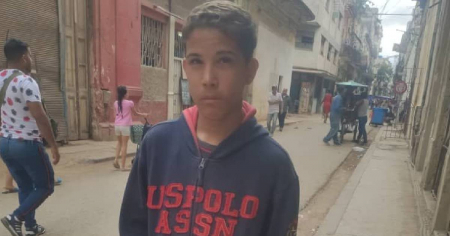A Cuban-American family faced a major disappointment after 24 years without visiting their relatives on the Island. They were stopped at a police checkpoint, where two PNR officers discovered that the driver of the car they had hired for their trip to Matanzas and then to Santa Clara had an outstanding fine, which wasn't even related to traffic violations.
Despite the Cuban-American's attempts to reach an agreement with the police to settle the fine, which was supposedly already paid but had not been processed by the system, the officers refused to accept it. They insisted that the only solution was to show the receipt and continue on their way or to continue the trip with another driver, the first one who passed by the area where they had been stopped for the check. Otherwise, they would have to wait for another patrol to arrive and escort them to the nearest station to resolve the issue.
The police were unmoved by the pleas of the Cuban-American who argued that after being awake for 20 hours, he just wanted to get to Matanzas and then to Santa Clara. Additionally, he clarified that he was not considering getting into a car with a stranger, out of fear of being robbed and assaulted during the journey.
Although the discussion did not escalate, one of the officers at the checkpoint reported over the intercom that the Cuban tourists were being "difficult," but the video of the incident shared on TikTok does not show any such behavior.
During the debate on the State Budget for 2025, the Minister of Finance and Prices, Vladimir Regueiro Alex, emphasized that the "positive figures" regarding the fiscal deficit for 2024 were due to "enhancing revenues from the territories, municipalities, and provinces; as well as the collection of taxes." This allegedly resulted in an overachievement in tax collection of more than 25 billion pesos, as reported by the Cuba Presidency and Government website.
It is understood that this type of road control is yet another tool for the government to generate revenue. In any case, it is a practice that is not common at an international level, as long as the fines are not for traffic violations.
In 2024, the Cuban government decided to enforce migration regulations to prevent at least 200 individuals in Sancti Spíritus from leaving the country (data updated until April of last year) who allegedly reported lower earnings than they actually had and did not catch up after being requested to do so by the National Office of Tax Administration (ONAT).
As police harassment related to taxes and politics increases, so too do drug trafficking and violent crimes in Cuba, which are not pursued with the same intensity. This has led to rampant insecurity, especially in the streets of Havana.
The latest development in the Cuban regime's revenue-raising efforts is the opening of a supermarket at 3rd and 70 in Playa, Havana, with exorbitant prices, where payment is accepted exclusively in dollars and change is given in candy.
Filed under:
